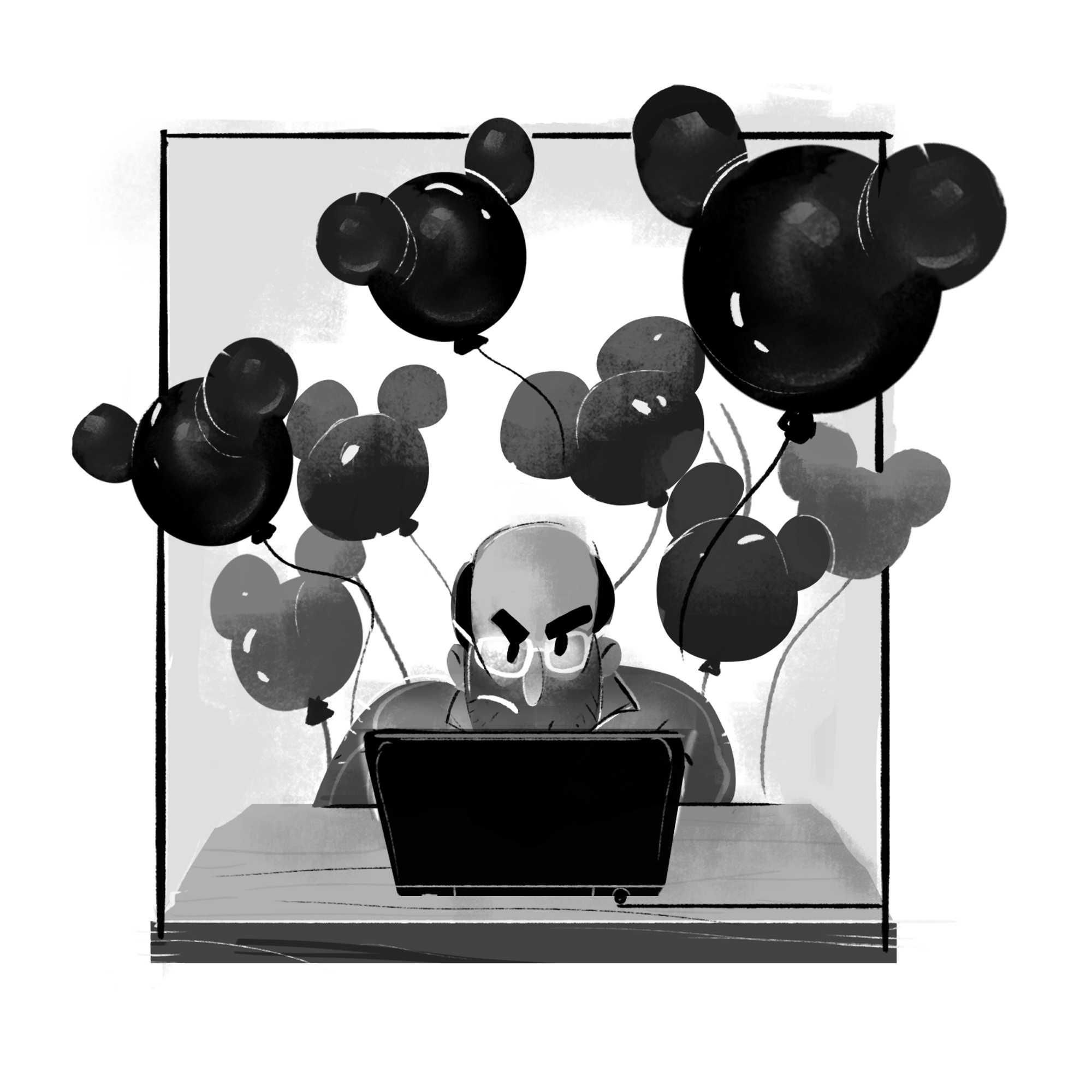GW is expanding a partnership with the Disney Institute that caught a lot of attention in recent months.
As University President Thomas LeBlanc attempted to tackle culture problems among faculty, staff and administrators, he turned to the Disney Institute to administer a survey that would give him data on exactly what the problems are at GW.
The University’s costly investment raised eyebrows and left faculty frustrated because of the large price tag and vague questions featured on the survey.

Cartoon by Jekko Syquia
When results showed that there are four main problems – inconsistent leadership, inefficient communication, poor service culture and a lack of employee appreciation – faculty and staff were unsurprised and angry, and we can’t blame them.
Many individuals connected to GW – including faculty and members of the Student Association – were concerned with the initial partnership, but despite those calls, the University decided to expand the services it is paying the Disney Institute for.
GW announced earlier this month that it will now enlist the Disney Institute again – this time to define employee expectations and the overall goals of the University.
It is concerning that GW needed to spend $300,000 to hear feedback from individuals that it works with every day, and such basic problems could have been communicated in more efficient and less expensive ways. The results of the survey already state that employees do not feel like decision-makers listen to staff, and this decision only exacerbates that problem because major parties clearly stated they did not agree with the partnership.
GW should not have continued to work with the Disney Institute after hearing these concerns, but considering the University has already signed on for additional services, it must at least put this information to good use.
Administrators now have data to back up a history of faculty complaints. With knowledge that the majority of faculty and staff have issues with the University’s lack of communication, leadership accountability, employee appreciation and service orientation, the University cannot continue to ignore faculty and staff members’ concerns.
It will only increase employees’ uneasiness if the University continues this partnership without transparency. Officials initially revealed the cost of the Disney Institute’s services in an interview with The Hatchet, but have declined to share the cost of the extension.
Regardless of the survey’s cost, there is value in data but the University must acknowledge that the concerns it is addressing are not new. While officials could have come to these conclusions without hard data, now that they have this information, there is no room to ignore these issues.
In addition to finding ways to reduce faculty and staff disapproval, it is vital that the administrators also look for ways to enhance the educational experience that faculty provide and students experience. While LeBlanc and administrators are in the right to focus on internal issues regarding faculty and staff, the quality of education that students receive is worth investing in.
Ultimately, the Disney Institute survey found that staff and faculty were dissatisfied for a variety of reasons, but embarking on this partnership in general also left employees dissatisfied. With the hard information in LeBlanc’s hands, he must fully address these issues and repair his relationship with faculty and staff who feel ignored and blindsided, especially as he continued this partnership without their blessing.
The editorial board is composed of Hatchet staff members and operates separately from the newsroom. This week’s piece was written by opinions editor Renee Pineda and contributing opinions editor Kiran Hoeffner-Shah based on conversations with The Hatchet’s editorial board, which is composed of managing editor Matt Cullen, contributing social media director Zach Slotkin, managing director Elise Zaidi, sports editor Barbara Alberts and culture editor Lindsay Paulen.

